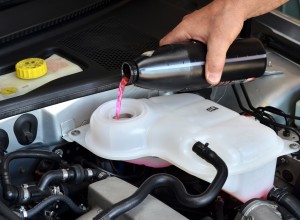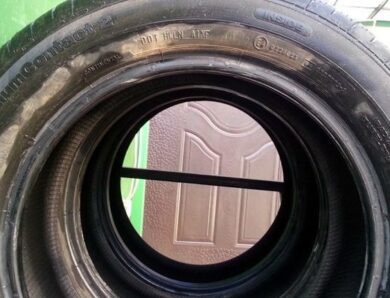Increased compression in the engine: reasons
It is well known to most experienced motorists, that the ease of starting the internal combustion engine directly depends on the compression ratio in a gasoline or diesel internal combustion engine, as well as the stability of the further operation of the power unit. Compression also has a strong effect on power, fuel and engine oil consumption, as well as the resource of the power plant.
Usually, many drivers and car mechanics at superficial diagnostics find out a number of breakdowns and define the general condition of the engine on an indicator of compression. It is not difficult to measure the compression in the engine. This operation is easy to implement in a normal garage, the engine does not need to be disassembled, and does not require special tools and equipment.
It is enough to unscrew spark plugs on the petrol engine or spark plugs on the diesel engine, then a compressor is installed through the adapter in the candle wells. Then the engine is turned from the starter, measuring the compression ratios in each cylinder and comparing them with the norm for a particular type of internal combustion engine.
However, although measurements are relatively easy to make, it is much more difficult to determine the exact cause of deviations from the norm, since compression can be low or high for a number of reasons. Next we'll talk about that, why there is increased compression in the engine, and may decrease.
High compression in the engine
so, as mentioned above, the compression in the power unit can be affected by a number of factors. Let's start with increased compression. First of all, increased compression usually indicates that, that there were problems in the engine. Usually, the main feature is unstable engine operation, change in exhaust color and increased oil consumption.
Usually motorists in many cases encounter the so-called "oil" compression, when the general coking of the engine and problems with oil removal rings lead to that, that excess oil and soot actually reduce the volume of the combustion chamber. The result is an increase in compression.
In other words, to increase compression leads to scale on the timing valves, accumulation of coke in the combustion chamber and the occurrence of oil rings. Engine overheating is also a common cause, when the oil from high temperatures loses its properties and quickly contaminates the combustion chamber.
Another list of reasons includes the use of additives in the lubrication system, filling unsuitable for the engine or low-quality oil, continuous operation of the engine on low-grade fuel, etc.. d.
Anyhow, but the accumulation of coke and soot leads to this, that the volume of the combustion chamber decreases, in which the fuel-air mixture is compressed. Naturally, in this case, the compressor will show too high compression when measuring.
We will add, that deviations from the norm can lead to incorrect installation of gas distribution phases. If simple, errors in marking the pulleys when replacing the timing belt or chain will lead to this, that the drive element jumps on several teeth (on the engine with a belt) or links (on chain motors) forward or backward.
To avoid possible problems, it is necessary to pay close attention to the location of the labels on the pulleys, engine housing, etc.. d., that is to expose the timing drive, and properly tighten the chain or belt.
High compression can also be caused by a combination of problems with the oil caps and rings. If after unscrewing of spark plugs in cylinders the obvious excess of oil in the form of a thick oil film on cylinder walls is visible, then this clearly indicates the need to replace the valve seals.
If you summarize the information, why there was increased compression in the engine, the reasons are as follows:
- a lot of oil in the engine cylinders (the rings lay down, worn valve seals, etc.);
- change in the volume of the combustion chamber as a result of accumulation of deposits and soot, as well as overheating of the engine and deposition of burnt oil;
We will add, that compression is affected by air temperature, air filter condition. When measuring, it is desirable to turn off the air filter. It is also important to understand, that at many service stations compressors have a large error.
In practice, this requires several re-measurements on a hot engine, and preferably different and pre-calibrated devices. There were cases, when at one station the driver after measurements determined compression, example, 12.5-13, and on other service indicators on all cylinders were already close 16.
There are several ways to solve the problem of high compression. The first - disassembly of the engine, physical cleaning of pistons and combustion chambers from soot, replacement of rings, oil caps, etc.. d. Cheaper and less efficient solution is the ability to decok the engine. In a nutshell, an active cleaner is poured into the combustion chamber for a certain time to remove scale and coke, then washed from the walls and surfaces of the deposits then burn out during engine operation.
Low compression in the engine
Let's note at once, how high, and low compression is a bad indicator for the engine. As for low compression, in this case, the engine does not start well in the cold, dim, does not pull, noticeably overconsumes oil, fuel, etc.. d. In gasoline engines when trying to start the unit with low compression additionally fills the spark plugs, which further complicates the situation.
Usually low compression is actually a leak in the combustion chamber and an increase in the gaps between the elements of the CNG. To be precise, then it is a question of production of walls of cylinders, occurrence or destruction of compression and oil removal rings, piston defects, damage to the cylinder head gasket, burnout of valves, etc.. d.
Usually, to reduce compression in the cylinders indicates high oil consumption, bluish oil smoke from the exhaust pipe, power loss and a number of other signs. There are serious problems when trying to start a cold engine, as before heating the gaps between the parts are greatly increased.
In most cases, the engine in such a situation must be disassembled, then boring or sleeve of the cylinder block is carried out, rings or pistons change together with rings, etc.. d. If the motor is very worn, then it is often quite appropriate to talk about a complete overhaul of the engine.
We also recommend reading the article about additives in the engine, so that the engine does not waste oil and smoke. In this article you will learn about the types of additives, features of their work, as well as the advantages and disadvantages of using such products.
As for the various reducing additives to increase compression, such a decision is quite controversial. We will not object, that in some cases the decoking of the engine, transition to a more viscous lubricant (example, from 5W30 to 10W40) and further use of oil additives to increase compression allows you to raise the figure, reduce oil consumption and continue to operate the unit for tens of thousands of kilometers. However, such methods do not always work.
If the unit is very worn, then most often the use of thick oils and additives can be considered only a temporary measure, which will allow you to continue to operate the car for a relatively short time.
Then you still need to do overhaul, moreover, the use of oil additives for some internal combustion engines also does not pass without additional negative consequences. In other words, sometimes it is better to start repairing the engine immediately, than delay repair, pouring into the unit oil not recommended by the manufacturer, as well as various additives and additives.
As a result
As you can see, high compression in a gasoline engine or diesel unit is no less serious, than low. Moreover, in this case, engine wear is also significantly increased, as the cylinders actually create high pressure. In such a situation, significant loads begin to experience important details and components.
We also recommend reading the article about it, why the engine smokes. In this article you will learn about the reasons, after which the engine begins to smoke "cold" and / or "hot".
The main thing, must be understood, that increased compression or its reduction is not the cause of failure, and as a result of existing problems. To save engine life and reduce wear, it is necessary to carry out complex diagnostics and repair, thereby quickly bringing the compression ratio to the design norm.
As for the "garage" ways to increase compression by decoking, for modern engines, this approach can do more harm, than benefits. At the same time for the old "classic" VAZ and other similar cars, the method has long been tested and in some cases the results are positive.
Finally, let's note again, what if the compression ratio has changed, it is necessary to find the cause as soon as possible, to prevent more serious consequences, especially in the case of an increase in this indicator. High compression can cause defects in the cylinder head, render the valve unusable, etc.. d., which significantly increases the total cost of subsequent engine repairs.




